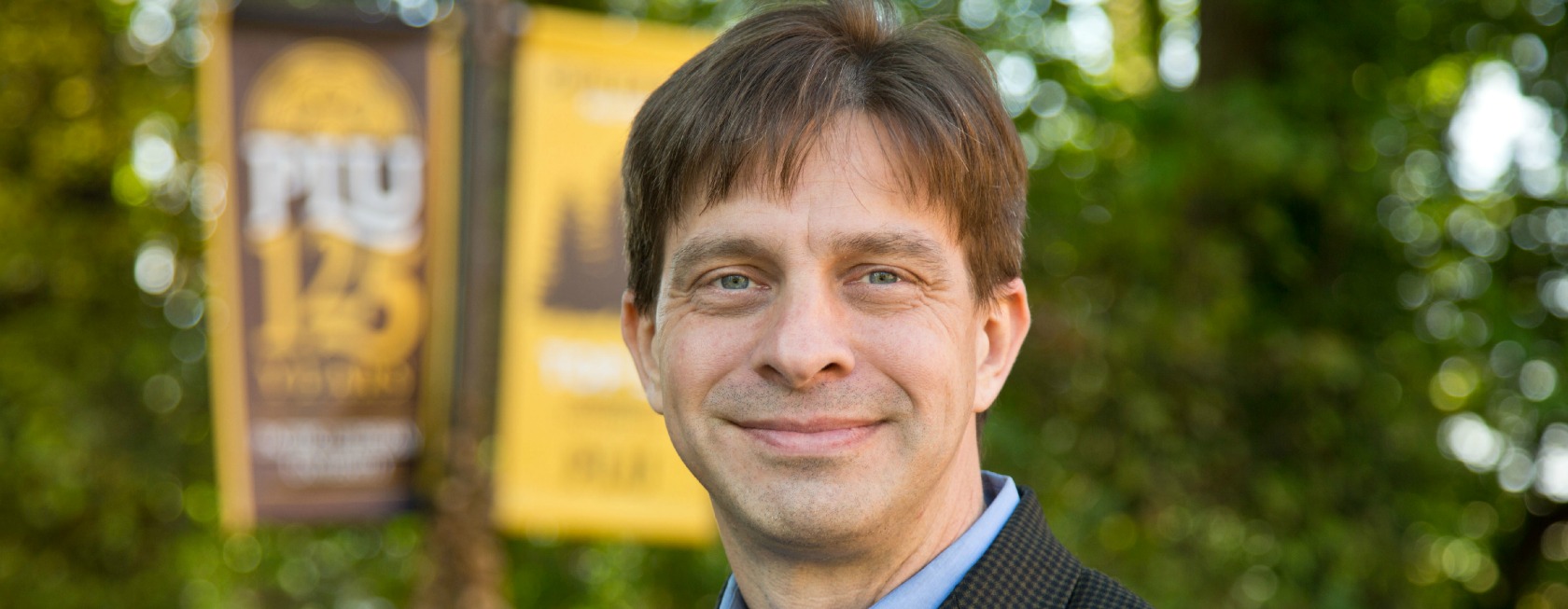PLU Psychology Professor Elected 2015-16 President-Elect of International Honor Society

Image: Jon Grahe, PLU Professor of Psychology. (Photo: John Froschauer/PLU)
By Sandy Deneau Dunham
PLU Marketing & Communications
TACOMA, Wash. (March 30, 2015)—Pacific Lutheran University Psychology Professor Jon Grahe has been elected the 2015-16 president-elect of Psi Chi, the international honor society in psychology. His three-year term begins in May 2015; he’ll serve as president-elect in 2015-16, president during 2016-17 and past president from 2017-18.
Grahe is a passionate advocate for undergraduate participation in crowd-sourcing science opportunities and a supporter of open science. He currently serves as a councilor in the Psychology Division of the Council for Undergraduate Research, is the managing executive editor for The Journal of Social Psychology and has been the Psi Chi Western Regional Vice President since 2011.
“This is an opportunity to serve my discipline, including students and peers,” Grahe said. “Since I arrived on the Psi Chi Board of Directors as vice president four years ago, I have advanced an agenda to increase research opportunities and participation (including crowd-sourcing projects) for our members. In January, the board approved my recommendation for a research advisory committee, and being president allows me to have a more active role in the early stages of that committee because I will remain on the board.”
Psi Chi has more than 1,150 chapters in the United States and abroad primarily serving undergraduates, but the society has programs for undergraduates, graduates and alumni members.
“Psi Chi uplifts and celebrates diversity where and when possible, and this includes the commitment to include international chapters in 2009,” Grahe said. “Though there are only a relatively few international chapters, we are deeply committed to reaching out to institutions across the globe. In addition, the organization awards over $400,000 in research and travel grants and awards each year and oversees Psi Chi programming at the seven APA regional conferences each year.”
Grahe said that when he ran for Western Regional Vice President, he focused on improving research opportunities for our undergraduate members. In coming years, he said, another big issue will be the many opportunities and costs associated with Psi Chi’s initiatives for internationalization and diversity.
“Over the next 10 years, we could see a tidal wave of new chapters, with most of them being international,” Grahe said. “I imagine a future where chapters from many countries collaborate on research and service opportunities, in addition to just making new friends. At the same time, Psi Chi has also increased its focus on diversity. We need better access for all qualified students.”
Grahe has taught for 18 years and is the co-founder of the Collaborative Replications and Education Project (CREP), a major undertaking with international implications—and a multifaceted mission. CREP (rhymes with “grape”) not only helps validate psychological research findings; it also allows undergraduate students, including those at PLU, to engage in potentially publishable research.
“Most student projects, the data go nowhere,” Grahe said. “In my classes I’ve always tried to get undergrads to do projects that might be publishable, but the problem is as one-off projects, they almost always are unpublishable.” But with CREP, he said, “Ideally, the undergraduate has a shot at publishing a paper here. That’s quite rare.”


